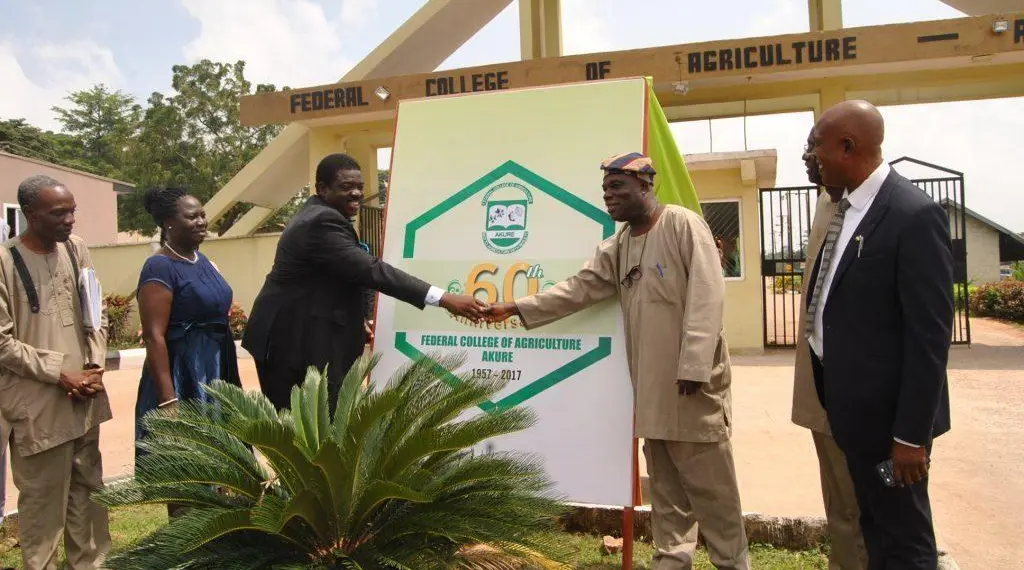Agricultural colleges found wanting for spending ₦721.35 million inappropriately;
Research institutes could not defend its expenditure of ₦109.67 million;
These actions contravene the Financial Regulatory Act of the Federal Government;
Worse, though, some of these institutions failed to respond to queries from the Auditor-General (AuGF);
The continuing defiance of regulations by MDAs poses questions to the National Assembly on its sanctioning mechanisms.
The fiscal improprieties of three Colleges of Agriculture and two research Institutes preface the ongoing educational decline for Africa’s self-acclaimed Giant. In total, these institutions drained ₦831.03 million according to the Auditor-general’s 2018 audit reports.
Similar to the financial imprudence displayed in the health sector, these findings pose dire implications for an industry devoid of adequate funding. Even worse, these instances of public funds mismanagement are not novel but persist even now. And the apparent effects remain a struggling economy devoid of basic amenities.
Educational institutions hoard the “national moi moi”
Federal Colleges of Agriculture Akure, Moore Plantation Ibadan and Federal College of Freshwater Fisheries Technology, New Bussa misused ₦721.35 million in 2018. Their transgressions ranged from non-deduction and non-remittance of VAT, WHT and Stamp Duties; payment without supporting documents; unretired cash advances; non-remittance of 25% IGR; circumvention of procurement procedures.
Of the three colleges, Federal College of Agriculture, Moore Plantation accounted for 93.6% of the total. This figure corresponds to ₦675.28 million, which the institution could not account for, per the report. What’s more? The college refused to submit financial statements for audit, and it’s officers diverted government properties for personal use.
The story is the same for the Federal College of Agriculture, Akure and Federal College of Freshwater Fisheries Technology, New Bussa, albeit with smaller sums; these corresponded to ₦20.27 million and ₦25.79 million.
Research Institutes employ circumvention techniques to line pockets
Elsewhere, research institutes in Ibadan and Umuahia showcase their research talents by circumventing procurement procedures. For the National Horticultural Research Institute, Ibadan, it was the sum of ₦55.99 million used in 2018. A figure the institute could not defend as identified by the Auditor General.
Instead, the AuGF highlighted instances of double payment for supply and consultant services, circumvention of procurement procedure and payment made without supporting documents. Others include store items not taken on leger charge and abuse of advance granted in one day.
Even worse, the National Root Crops Research Institute, Umuahia Abia State did not deem it necessary to submit its 2015 to 2017 financial statements. Aggravating its shaky credence was the misappropriation of ₦53.68 million in 2018. Again, the AuGF observed cases of unretired cash advances, circumvented procurement processes and made payments without supporting documents.
Implications for development
It does not take an economist to point out the implications of these institutions improprieties. Revenue drain is the result of non-deduction and remittance of monies from revenue channels. And these institutions are some of the government’s revenue channels. Similarly, overspending creates imbalances in the expenditure profile during the budget process.
In the same vein, the quality of educational services in these colleges is on the line. The mismanagement of funds meant for improving educational services entails poor service delivery. Thus, the poor development of education, in general, is attributed to management’s misappropriation of available funds at their disposal.
Actions contravene Financial Regulations
Beyond the absence of common sense, the above institutions displayed, their actions further contravene Financial Regulations. Stipulations that detail a clear road map on how agencies handle funding and procurement, among others; some highlights include:
234(i) – Accounting Officers must ensure full compliance with the dual role of making provision for the Value Added Tax (VAT) and Withholding Tax (WHT) due on supply and services contract and actual remittance of same.
603 (I) – All vouchers shall contain full particulars of each service such as dates, numbers, quantities, distances, and rates, as to enable them to be checked without reference to any other documents will and variably be supported by relevant documents such as local purchase orders, invoice, special letters of authority, timesheets etc.
1405 – Accounting Officers are responsible for ensuring prompt repayment of all advances by instalments or otherwise.
Moreover, the Federal Government Treasury Circular maintained that all accounting officers controlling expenditure are to ensure that all local procurement of store and services above ₦200,000.00 be made through the award of contract. The Public Procurement Act, Section 24 (1) explains this process as open bidding to ensure competitive contracts.
However, despite the above regulations, instances of violations continue to surface. Infractions that question if the accounting officers are aware of these directives. Or is it just a question of defiance because of weak sanctioning mechanisms. A challenge experts have condemned while bemoaning financial irresponsibilities by MDAs. In all, these are some questions Nigeria’s National Assembly must answer for the nation to move forward.


